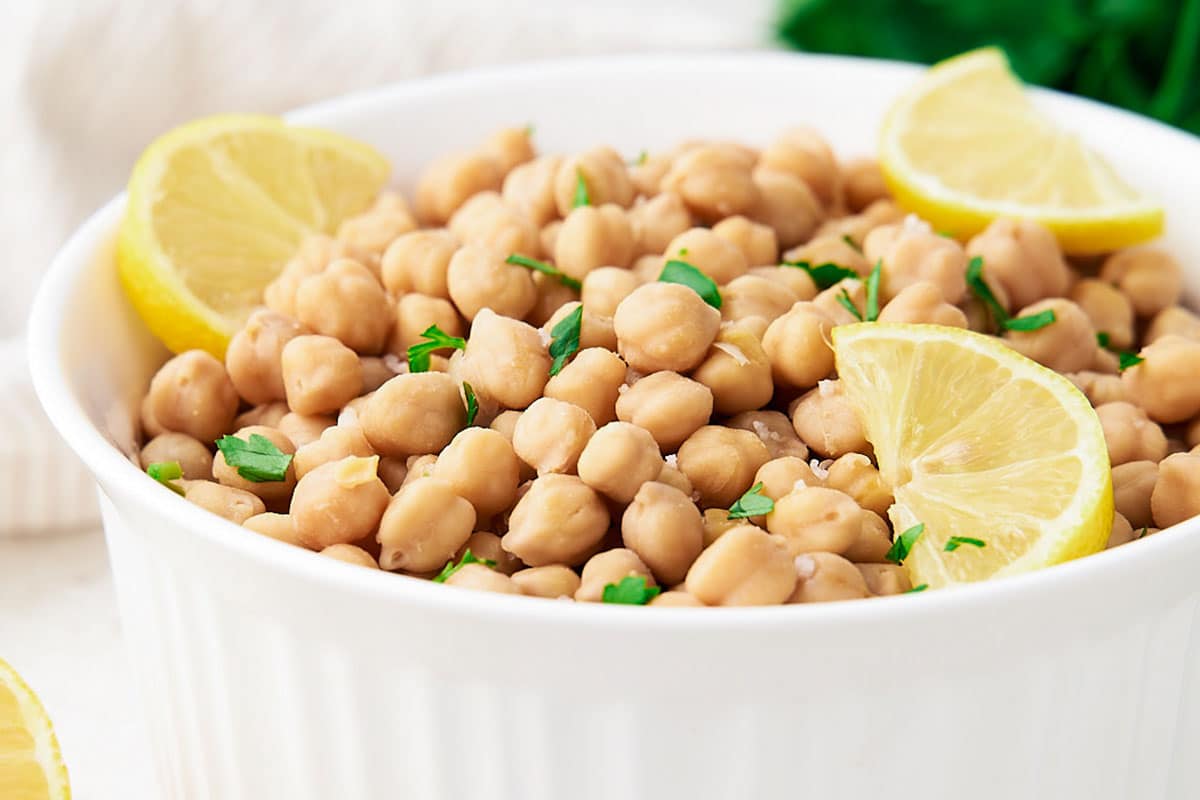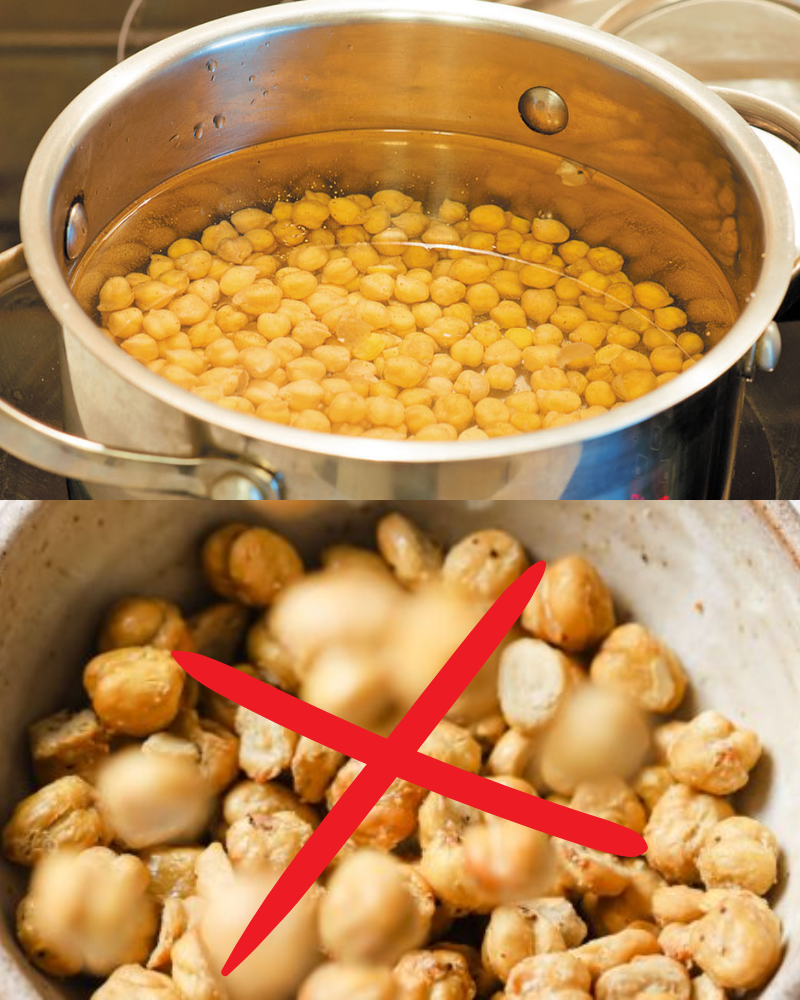4. Cooking at Too High a Temperature
Cooking chickpeas over high heat can lead to uneven results. The outside may become too soft or fall apart, while the inside remains hard.
Solution:
Cook chickpeas over low to medium heat. Slow cooking allows them to soften evenly and develop the perfect texture. A pressure cooker is also a great option — it significantly shortens cooking time while preserving the chickpeas’ nutritional value.

5. Not Monitoring the Cooking Process
Neglecting the cooking process can lead to overcooked or undercooked chickpeas. Cooking time depends on various factors, including chickpea size, the type of pot, and the age of the legumes.
Solution:
Check on the chickpeas regularly. When they seem nearly done, taste a few to ensure they’re tender but still hold their shape. On average, chickpeas take 1 to 2 hours to cook on the stovetop, but a pressure cooker can cut that time down considerably.
6. Improper Storage of Cooked Chickpeas
Improper storage can ruin the texture and flavor of your chickpeas and the dishes you make with them.
Solution:
Once cooked, let the chickpeas cool to room temperature, then store them in an airtight container in the fridge. They’ll keep for up to 3 days. For longer storage, freeze them in food-safe bags — ready to use for future meals.
Cooking chickpeas is simple, but avoiding a few common mistakes is key to getting the perfect result. By following these tips, you’ll end up with tender, flavorful, and easy-to-digest chickpeas.
Always remember to choose quality legumes and give them the time they need — the payoff is delicious, healthy dishes every time.
4. Cooking at Too High a Temperature
Cooking chickpeas over high heat can lead to uneven results. The outside may become too soft or fall apart, while the inside remains hard.
Solution:
Cook chickpeas over low to medium heat. Slow cooking allows them to soften evenly and develop the perfect texture. A pressure cooker is also a great option — it significantly shortens cooking time while preserving the chickpeas’ nutritional value.

5. Not Monitoring the Cooking Process
Neglecting the cooking process can lead to overcooked or undercooked chickpeas. Cooking time depends on various factors, including chickpea size, the type of pot, and the age of the legumes.
Solution:
Check on the chickpeas regularly. When they seem nearly done, taste a few to ensure they’re tender but still hold their shape. On average, chickpeas take 1 to 2 hours to cook on the stovetop, but a pressure cooker can cut that time down considerably.
6. Improper Storage of Cooked Chickpeas
Improper storage can ruin the texture and flavor of your chickpeas and the dishes you make with them.
Solution:
Once cooked, let the chickpeas cool to room temperature, then store them in an airtight container in the fridge. They’ll keep for up to 3 days. For longer storage, freeze them in food-safe bags — ready to use for future meals.
Cooking chickpeas is simple, but avoiding a few common mistakes is key to getting the perfect result. By following these tips, you’ll end up with tender, flavorful, and easy-to-digest chickpeas.
Always remember to choose quality legumes and give them the time they need — the payoff is delicious, healthy dishes every time.

